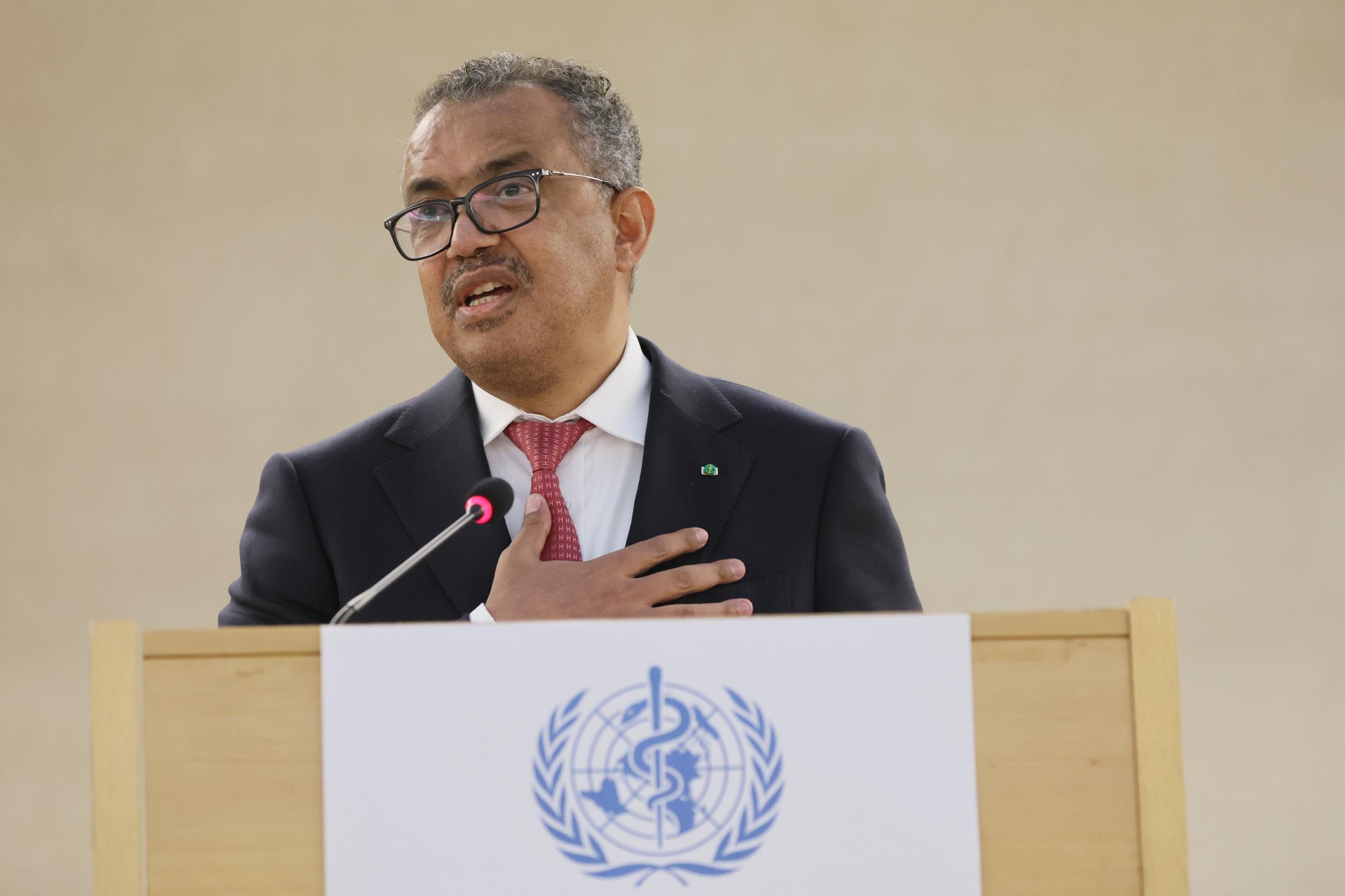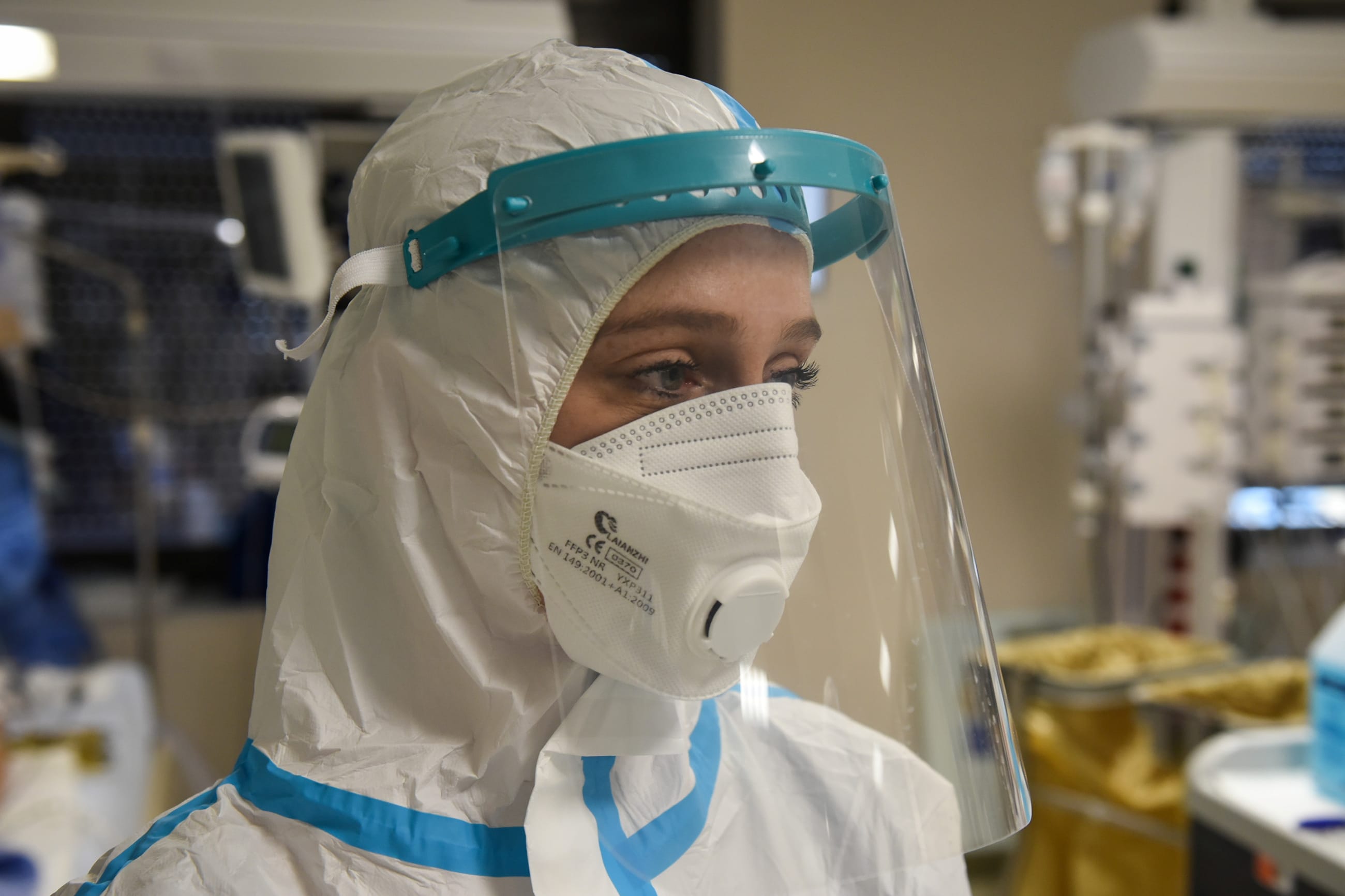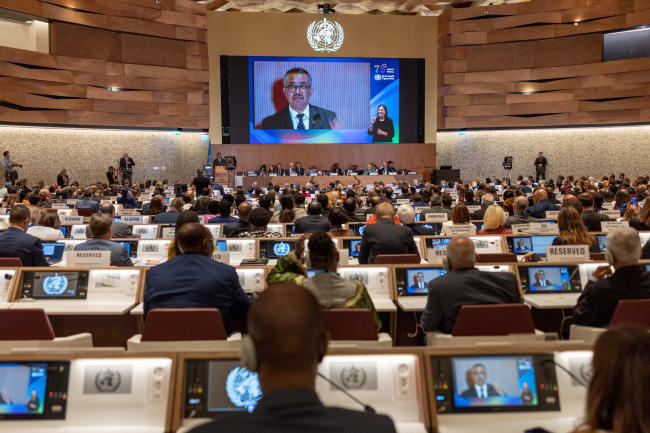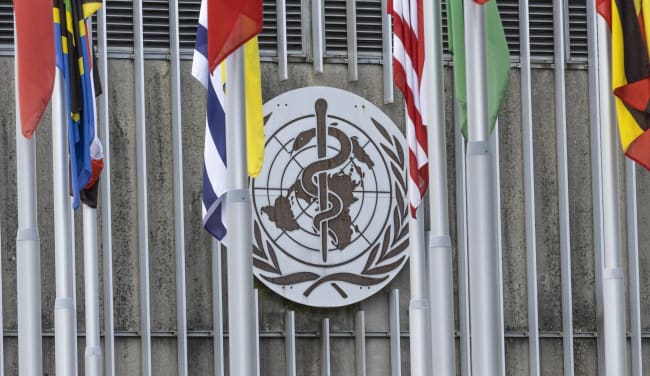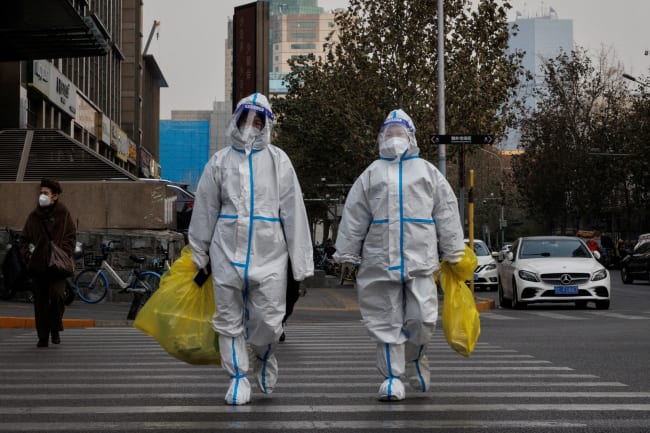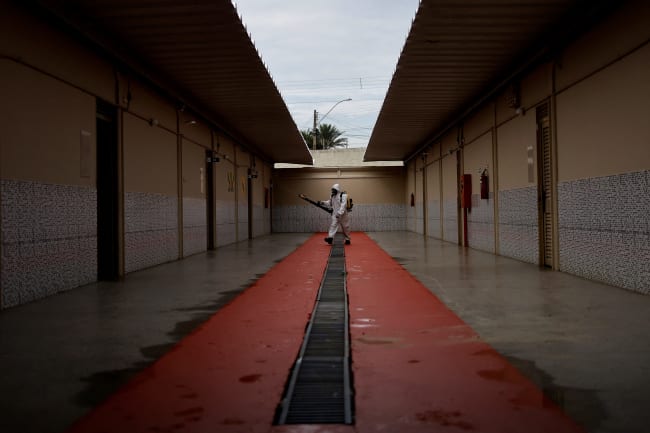After more than two years of discussion and negotiations, the representatives for 194 nations failed to finalize a draft of the Pandemic Agreement, an international accord meant to fix the weaknesses and global inequities in pandemic preparedness that COVID-19 revealed.
The chairs of the World Health Organization's Intergovernmental Negotiation Body (WHO INB), which convened the deliberations, conceded on May 24 that negotiators would be unable to deliver a draft accord in time for the seventy-seventh World Health Assembly (WHA), which begins on May 27 and would have been responsible for approving the treaty.
"Every one of you tried to make this work," Precious Matsoso, INB co-chair, said at the final session. "Everyone was given a huge opportunity to make a difference in people's lives. That's something that none of us can take for granted."
After missing its initial deadline to finalize the Pandemic Agreement on May 10, the WHO INB carried negotiations into this week in a race against the clock.
Every one of you tried to make this work.
Precious Matsoso, INB co-chair
Those who followed the process have been largely underwhelmed by the negotiated drafts of the accord relative to its initial ambitions, and the divisive nature of the talks leave questions about what legally binding terms for international cooperation on pandemic preparedness are achievable in the future.
Several domestic political battles had already emerged well before a decision could be made.
In countries including the United States and the United Kingdom (UK), far-right antipathy for international legal agreements and their purported threat to national sovereignty have rendered ratification of the agreement politically divisive. In the United States, all 49 Senate Republicans signed a letter to President Joe Biden demanding that his administration "withdraw support" for the Pandemic Agreement and IHR amendment at the World Health Assembly given that they "constitute intolerable infringements upon U.S. sovereignty"—"shredding intellectual property rights" and "free speech." They warned that they would consider the two international agreements to be "a treaty requiring the concurrence of two-thirds of the Senate under Article II Section 2 of the Constitution."
Misinformation on social media about the agreement has also bred increasing public resistance against it.
The Accord's Inception
The road formally began in December 2021 when the WHA held its second-ever special session to initiate the process for a "WHO convention, agreement, or other international instrument on pandemic prevention, preparedness and response," establishing the INB as its formal negotiating body. After the catastrophic loss of life and absence of international coordination seen during the COVID-19 pandemic, the agreement's aims, according to WHO Director-General Tedros Adhanom Ghebreyesus, would be to ensure more equitable access to medical countermeasures, safeguard health systems through improved sharing of information about emerging pathogens, and enhance cooperation between member states on confronting health crises.
If ever adopted by the WHA, the Pandemic Agreement would become only the third legally binding health accord that WHO member states have successfully negotiated, joining the International Health Regulations (IHR), first adopted in 1969, and the Framework Convention on Tobacco Control, adopted in 2005.
The IHR, which defines "countries' rights and obligations in handling public health events and emergencies that have the potential to cross borders," including the mandate to report such events, was largely observed to be both insufficient and ignored during the COVID-19 response. Complementing their call for a new pandemic instrument, WHO member states also launched a parallel negotiating process in 2022 to amend the IHR to strengthen its implementation and compliance. That negotiation has reportedly made more progress but whether the WHA will approve IHR revisions next week or wait to do in tandem with the pandemic accord is still uncertain.
"Let's take the Assembly as an opportunity to reenergize, to be inspired, and to have even more commitment and prepare us to address the problems to get us where we need to be," Adhanom Ghebreyesus told Friday's INB session. "Inshallah, we will conquer this."
Watered Down by Negotiations
Although the WHA's decision to establish the INB was based on broad recognition that countries were not adequately or equitably prepared for COVID-19, two and a half years of unrelenting divisions between member states over the policy's details produced an agreement criticized by many as largely watered down from its initial intent.
Long-standing disputes between high- and middle- to low-income countries over issues of intellectual property protection and resource-sharing persisted throughout the nine INB negotiating sessions and saw little compromise. The sessions were underpinned by a lack of trust on both ends from unsuccessful past international negotiations to the historical trauma of COVID-19 vaccine distribution and legacies of colonialism.
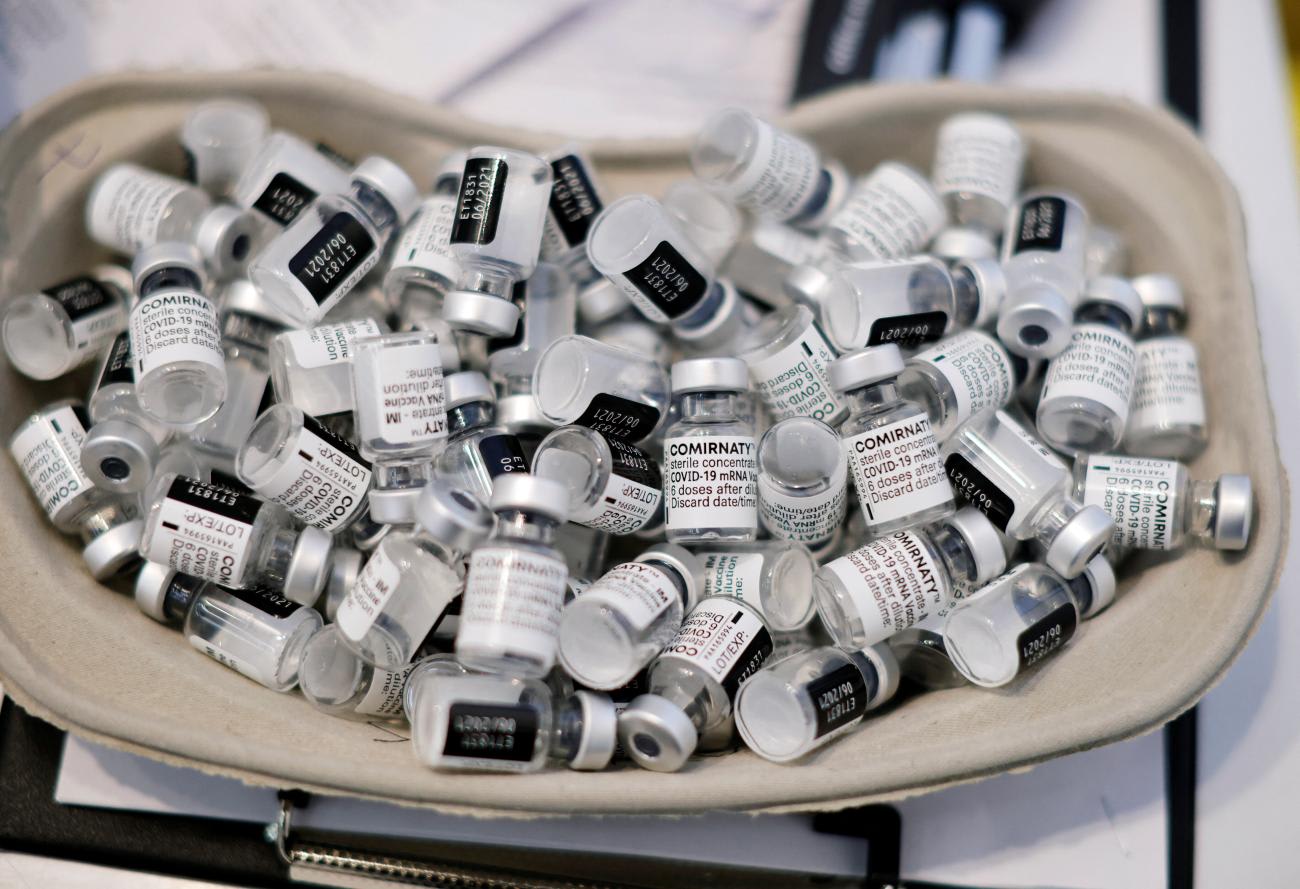
As new drafts emerged, language aimed at promoting equity—including conditions of shared countermeasures resulting from public funding, donated vaccines derived from pathogen genetic information in developing countries, price transparency, and technology transfer of medical products (such as vaccines) during a health emergency—became increasingly weaker.
Another disappointment has been the absence of measures to boost accountability and compliance with the new provisions. Although a chief motivation for the development of a pandemic agreement was the lack of regard for the IHR and compliance monitoring during the COVID-19 pandemic, that issue was cast aside.
Key Roadblocks
After nine INB sessions, negotiators entered this week of extended meetings with one-third of the more than 300-page draft agreement still lacking consensus or not yet discussed. The bulk of the remaining provisions scheduled for review—geared toward promoting equity and considered by most stakeholders as the meat of the Pandemic Agreement—were held up by the same disagreements and competing interests between high- and low-income countries that characterized the negotiation process. Among other tricky issues, such as surveillance and financing, three topics drove negotiations down to the wire.
Pathogen Access and Benefit Sharing. By far the most contentious provision in the Pandemic Agreement is the system of pathogen access and benefit sharing (PABS) in Article 12, described by Matsoso from South Africa as "the heart" of the agreement in a recent media briefing. Borne from the vast inequity in treatment access and vaccine distribution between high- and low-income countries during COVID-19, a PABS system could ensure that access to genetic resources and pathogen samples from developing countries is met with the shared benefits that are produced by them, such as vaccines and diagnostics. The most recent idea is that manufacturers of vaccines and diagnostics—predominantly in wealthy countries—that use genetic information from pathogens in low- and middle-income countries would agree to donate some amount to the WHO to distribute globally.
Some rich nations reportedly view the PABS as conditional on a One Health policy.
Representatives from developing and wealthy member states, namely, the European Union, the United States, and their robust pharmaceutical industries, were divided over the details of the mechanism. The release of a draft in April caused outrage when it suggested to delay decision-making on the PABS to a future working group, reducing the provision in the Pandemic Agreement to a series of broad principles. The African Group, responded by asking for a 20% guarantee of shared health-related pandemic products, recognizing that access to medical countermeasures during a health emergency is the one lasting benefit for low- and middle-income countries in an otherwise weakened agreement.
The Telegraph reported last week that the UK was opposed to signing the Pandemic Agreement as it would be forced to "give away a fifth" of its vaccines in a pandemic, a false claim in reference to the draft PABS text that 20% of pandemic countermeasures should be shared with the WHO for distribution to developing countries. False or not, the UK Department of Health and Social Care made clear in a recent statement that it would "only support the adoption of the accord and accept it on behalf of the UK, if it is firmly in the UK national interest and respects national sovereignty."
One Health. Part of the controversy over PABS has been the last-minute proposal of a One Health provision, under which member states would promote a pandemic preparedness and surveillance approach "recognizing the interconnection between the health of people, animals and the environment, that is coherent, integrated, coordinated and collaborative among all relevant organizations, sectors and actors, as appropriate."
Some rich nations reportedly view the PABS as conditional on a One Health policy, which would also be pushed to a working group and delayed until 2026. However, low- and middle-income countries have cited concerns that it would impose additional unfunded mandates on them.
Production, Technology Transfer, and Intellectual Property. Second only to the PABS standoff, fierce division over the governance of production and technology transfer and its implications on intellectual property, outlined in Articles 10 and 11, has held up negotiations. During COVID-19, countries failed to align on a trade response to boost access to critical medical products.
A core aim of the Pandemic Agreement—beyond ensuring immediate availability of medical products in an emergency—has been to promote long-term and sustainable access to medical products by diversifying production and boosting regional manufacturing. Article 11 of the accord—on the transfer of technology—was one of the most debated provisions given its implications for intellectual property.
Conditions for technology transfer to "facilitate sustainable and geographically diversified production" through mechanisms such as compulsory licensing and product information sharing have been at the center of the dispute. High-income countries and industry stakeholders have pushed for Voluntary and Mutually Agreed Terms (VMAT). Low- and middle-income countries, on the other hand, prefer mandates in the context of health emergencies, having focused on concerns that the inclusion of VMAT qualifiers would preclude mandatory approaches when voluntary ones do not work, resulting in deadlock.
Given perennial challenges in global health governance, impossibly high expectations, and inhospitable geopolitics, it is no surprise that negotiations faltered.
It is important, however, that member states are given a reason to believe that the lack of an agreement now is not a failure, but a start. A path does lead forward. International cooperation on pandemic preparedness and response need not and should not end here.
"We've come to the end of a roller coaster ride," INB Co-Chair Roland Driece told Friday's session. "We're not where we hoped we'd be when we started this process, . . . but we worked so hard—all of us."
